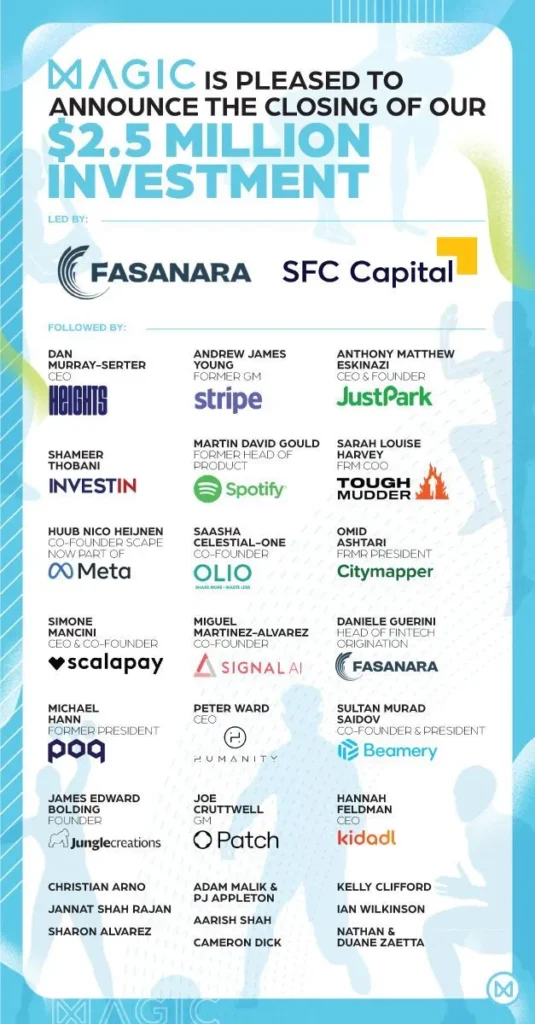
As Lululemon struggles to offload its fitness mirror, a London startup is ready to change the personal trainer game with its AI-driven device
Magic AI, a London-based fitness tech startup, has raised $2.5 million for its at-home fitness mirror product.
Martin Gould, former head of product at Spotify, Andy Young, former GM at Stripe, and Sarah Harvey, former CMO at Tough Mudder, are among a long list of angel investors in the AI-driven fitness company.
Magic AI’s co-founder, Varun Bhanot, took to LinkedIn to share his excitement.
“BIGGEST update of 2023. Today, it’s the honor of my life to announce: We have raised a $2.5 million round in our company Magic AI to support our continued growth,” he posted. “Something that started from my parent’s garage got the support of some of the world’s best investors & athletes. Onto making personal training affordable & accessible for everyone.”

He also gave a heartfelt shout-out to fellow co-founder Sunil Jindal. Fasanara Capital led the funding with SFC Capital.
Bhanot took a startup loan from Virgin StartUp to create the futuristic personal trainer. Before launching Magic AI, Bhanot was working at another startup, taking notes on how to build a company.
It also became a personal mission. As Bhanot told Virgin, too many kebabs and too much whiskey led him to experience clinical obesity. After deciding to work with a trainer, he lost a quarter of his body fat while learning about weight and strength training.
He also discovered that personal trainers aren’t always available for everyone, can be expensive, and it can be difficult to effectively personal train at home. In response, Bhanot desired to automate personal training using at-home technology.
The fitness coaching mirror uses AI, offering instant form feedback as it reviews reps, position, pace and range of motion, providing a score based on each rep.
Fitness programs include AI sports coaching, dance, meditation, HIIT, cardio and yoga. Magic also sells smart adjustable dumbbells and a folding incline bench as add-ons. The complete package, the Magic Pro, is offered for £1,999.00 (around $2,580.)
After purchasing the fitness mirror, Magic AI members get free access to personalized form-tracking technology, workout programs led by athletes, content and AI tech updates.
Can Magic Succeed Where Others Have Failed?
Magic AI’s hardware-first approach comes as brands like Lululemon are looking to shift away from fitness equipment in favor of digital content. The athleisure giant acquired Mirror, a connected fitness product, in 2020 for $500 million, hoping to bank on the at-home fitness boom before eventually taking out a $443 million “impairment charge” on the hardware.
Lululemon recently laid off around 100 employees in its Studio fitness division as it reportedly struggles to find a buyer for Mirror despite offering it at a cut-rate price.
Forme, which also offers a smart mirror and personal training, went public in April with a $12 million IPO but had a disappointing first day of trading. The connected fitness company trades under TRNR and is currently listed at $2.18, down 67% in the last six months.
